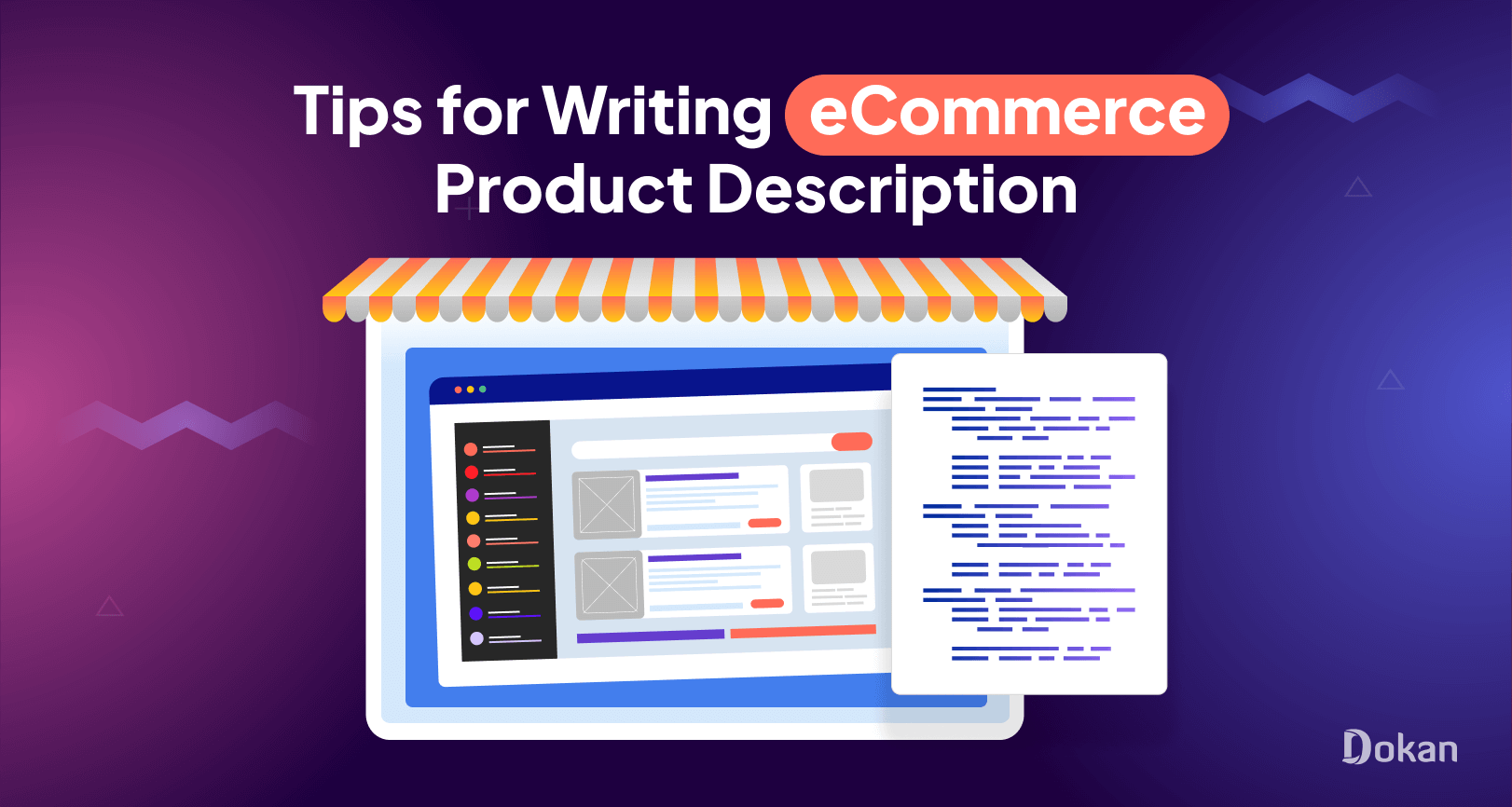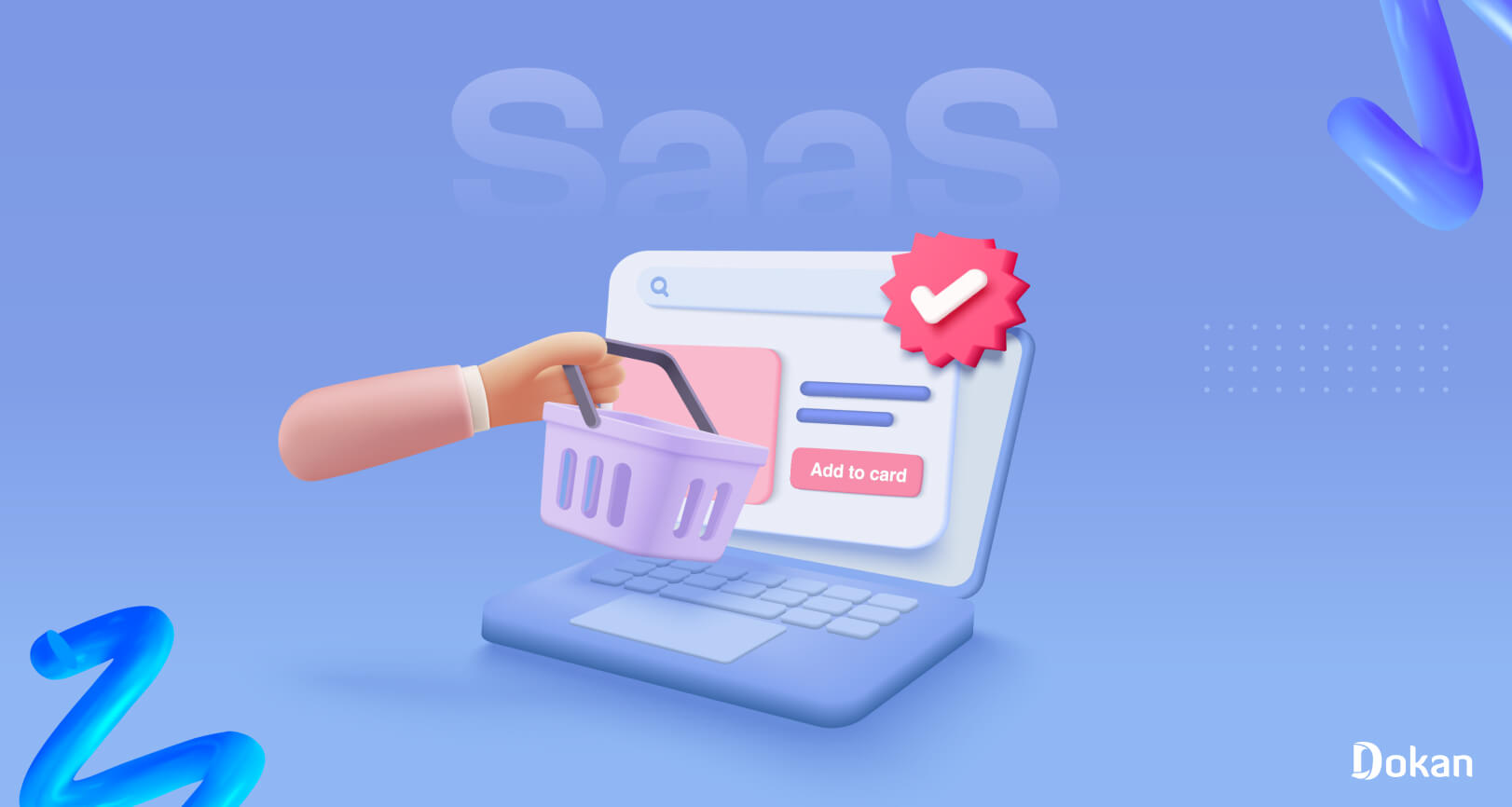If you are confused to choose between an online store vs marketplace, you have landed at the right place. Today, we are going to discuss both platforms and eventually make the decision on which one is better for whom.
Though both platforms are used to sell online, actually, each solution leads you to a different group of customers. Both have their pros and cons. Both have different approaches to kickstarting an online business.
Therefore, it’s one of the fundamental aspects you need to decide on before going live. So, without any delay, let’s directly jump into the main discussion to clear your confusion right away.
What is an Online Store?
An online store is a website where you sell anything online. The total control of that site belongs to you. Also, you don’t have to share any percentage of the sales with anyone else.
Basically, it’s a platform that you can use to list and sell your products. The website will include only your products and they are placed into categories. There are two parties involved when a sale is made on an eCommerce website, the buyer and the seller.
Since an online store belongs to you, so, everything in your store will be set up and maintained by you. You also have to make sure that the online store is always secure, up. and running.
Benefits of an Online Store
Let’s examine having an eCommerce platform vs. a marketplace, and discuss the benefits of owning your own eCommerce store.
a) You’re in Charge
When focused on creating your very own site, you have complete control over every aspect of the business. You get to create the rules, set custom selling scenarios, choose features, etc. Plenty of eCommerce platforms where you can build your store allow adding some new features using extensions and modules.
b) You Can Make Your Site Stand Out
In a marketplace, you have to deal with a high level of competition. There can be hundreds of other sellers with the same or similar items making it difficult to showcase your store and how you’re different. But with your own eCommerce store, you can make it stand out from the crowd by adding exclusive features for an eCommerce site.
c) You Can Ensure Better User Experience
When you’re one of the thousands in an online marketplace, it is hard to be unique. Most marketplace platforms do not offer profile personalization. With your own store, you’re able to use templates or design your site the way you prefer.
You can also hire a developer to create a custom design for you. This can help you provide your customers with a great, unique experience when visiting your store.
d) No Fees to Showcase Your Products
Most marketplace platforms make you pay to list your product which means you have costs before you even make your first sale. Aside from that, you pay a fee for every transaction, too. The prices depend on the platform you choose. You aren’t paying those costs when you own your own store.
e) Marketing Freedom
Online marketplaces don’t give sellers direct access to their shoppers. This restriction makes it impossible to try out marketing strategies or inform shoppers about new special offers, arrivals, or other useful news. When you own your eCommerce site, you can analyze your customers’ behavior and gain other relevant insights.
The data and statistics you get can help with improving your marketing campaigns as well as adjusting your products to their specific needs.
Limitations of an Online Store
The online store has some challenges to becoming successful in this category. Let’s find the main drawbacks of using an online store.
a) Bigger Investment
When you want to kickstart your online business, you have to create an online store from scratch. Regardless to say you’ll have to invest a handsome budget for creating an eCommerce site. Also, if you need to hire a developer, the cost will go higher.
b) Budget, Time, and Resources to Train Your Team
You’ll have to maintain a team to run your own online business. You’ll face success or failure depending on the honesty and expertise of your time. So, you have to train and monitor them 24/7 to get the best output out of them.
c) Greater Effort to Attract Traffic to Your Store
If you want to sell products to your customers online, you need to have visitors to your site. Creating a site from scratch and pulling traffic to that site is a very challenging task. It takes a lot of time, energy, and effort.
What is a Marketplace?

In the most simple terms, a marketplace is a website where the products offered come from multiple sellers. The variety of assortment a marketplace offers is exactly what attracts customers, just like a shopping mall does in real-life.
Let’s look at how Amazon works. The website is maintained by Amazon company. They invest time and money to attract potential clients and offer a safe shopping experience. But once the customer finalizes the sale, the products are not shipped by the marketplace; they are stored and shipped by the seller.
Marketplaces earn money by charging a commission from sellers and customers. Some marketplaces charge a flat membership fee or offer a combination of these two. The commission can vary from marketplace to marketplace. In general, marketplaces like eBay, Amazon, and Etsy charge commissions between 5-15%.
Related: What is a Marketplace: History, Types, Features, and More Facts You Should Know
Benefits of a Marketplace
The main benefit of selling on a marketplace is that the vendors don’t have to worry about website maintenance or website performance. Most marketplaces also offer free stores.
Let’s check what else a marketplace can offer to its vendors.
a) Easy to Start
The online marketplaces understand the needs and requirements associated with sellers selling online. They have built dedicated features and mechanisms to assist and track the performance of the seller’s products. One also doesn’t need to invest resources for a domain name, host, and other intricacies in setting up their websites.
b) Ready Audience
Research on attracting traffic to a website by HubSpot shows that,
61% of marketers agreed that attracting their relevant audiences and leads was their biggest challenge.
This problem gets solved as each marketplace has its loyal customer base. A large portion of which frequently revisits to make repeated purchases. Hence, you’ll have no trouble generating traffic for your featured products when selling online.
c) Ready for Different Platforms
Nowadays, the majority of product searches take place on mobile phones. As these marketplaces are rich with resources, they have built their mobile apps that adhere to the latest customer preferences with regular updates based on ever-evolving technological changes.
As a result, when you are selling online. Listed products on these marketplaces appear in their mobile apps as well. So, you don’t have to optimize your store for mobile phones separately.
d) Wider Payments Options
The marketplaces offer a wide variety of payment methods. The payment methods get integrated into their e-commerce marketplace. It helps in reducing the rate of cart abandonment.
In a recent study, 42% of online shoppers said that the types of payment options offered are a factor that influences them when deciding where to shop digitally
PayPal
e) Faster Shipments
Most of the marketplaces are offering a service similar to FBA (Fulfillment by Amazon). It is of great help because once you stock your products in the Fulfillment by Amazon facility, it takes away the entire shipping and order managing responsibility off your shoulders.
Limitations of a Marketplace
When looking at the choices, it gets tempting to list products on marketplaces and connect with the ideal audience. But, let us look at the drawbacks of selling through a marketplace.
a) The Marketplace Fee
All the prominent marketplaces have a policy of levying charges on the sellers. These are in the form of a fixed amount or a percentage of revenue from their sales. The expenses like the listing fees and selling fees can be a bit much for sellers affecting their investment return.
b) The Pressure of Being Affordable
If your competitor from the same marketplace is giving a better deal and service than yours, he’ll be getting the majority of orders. It can be quite frustrating. It also means that although your product is superior in quality, if a product with similar features beats your price, you’ll experience a drastic decline in revenue.
c) Complexity of Generating a Loyal Customer Base
The buyers buying your very own product through these marketplaces may never get to know of your existence. Every time they want to make a purchase, it’ll be the marketplace they’ll remember as a point of reference for their previous purchases and not your store. This makes the journey of generating a loyal customer base very tough.
Online Store vs Marketplace: What’re The Main Differences?

You may have already guessed what are the main differences between an online store and a marketplace. However, we have pointed out 5 major differences that you need to know before choosing a platform for you.
i. Number of Parties
There are three parties involved in a marketplace. They are the marketplace administrators, the vendors, and the customers. On the contrary, there are only two parties involved in an eCommerce site- the seller and the buyer.
ii. Inventory Management
Marketplaces usually do not have inventory since they only create a space for sellers to connect with buyers. On the other hand, eCommerce sites need to hold inventory in order to meet customer demand unless they are using drop shipping.
iii) Marketing and Brand Recognition
Marketplace sellers can use the consumer trust and recognition of the marketplace and access a large audience of potential buyers immediately. But when a seller builds an eCommerce site, he has to spend money and time to market the website, brand, and product.
iv. Investment
You need investment to launch your product on your eCommerce website. While in marketplaces, you need less investment compared to an eCommerce store. You just need to register in a marketplace as a vendor and customize your store to start selling your products.
v. Options
You don’t get many options in choosing products while going to a regular online store as they have a small set of brands.
A marketplace offers a range of options for choosing products. As many dealers and sellers sell on the same platform. Thus, small businesses used to choose the marketplace over an online store to sell their second-hand products.
Online Store vs Marketplace – A Comparison Table
| Features | Online Store | Marketplace |
|---|---|---|
| Definition | An online store is a website that sells products from a single vendor to multiple customers | A marketplace is a website that sells products from multiple sellers to multiple customers |
| Parties | Buyers and sellers | Marketplace admin, buyers, and sellers |
| Inventory | Maintain an inventory | Do not maintain an inventory |
| Cost | Need budgets for buying hosting and creating a website | Just need to pay commissions |
| Traffic | You’re liable to attract traffic to your store | Already there is traffic for the marketplace |
| Example | Nike, Allbirds | eBay, AliExpress, Walmart |
Online Store vs Marketplace: Where to Sell?
Most online marketplaces bring together small and medium-sized brands and businesses, so they are excellent platforms for earning revenue if you are just starting your sales and want to save resources.
However, online marketplaces are not good tools for brand awareness. This is due to the buying habits of users, who use marketplaces to compare products quickly, and the design of the platforms, where your product pages will be the same as those of your competitors. This makes it difficult to stand out and draw attention to attract traffic to your own channels.
On the other hand, if you don’t want to share your profit with anyone else, going for an online store would be a better option for you. Here you can plan for different promotional campaigns and thus make a loyal customer base.
Be remembered, you will be solely responsible for site designing, developing, customizing, and marketing. Also, you will have to come up with ideas to acquire customers.
Basically, both options have some benefits and pitfalls. So, choose a platform that seems more beneficial to you.
Choose the Platform and Kickstart Your Business Now
At this point, you should make up your decision on which platform is convenient for you. So, whichever platform it is, one thing there is in common- you have to work really hard to make money out of your business.
If you have a solid plan to kickstart your business, you should choose a platform right now to start your journey. The clear your idea about the online store vs marketplace, the less complexity you’ll face to proceed to the next phase of your business.
So, if you have any confusion regarding this topic, it’s time to raise your question in the comment box below. We’ll address your queries at our earliest convenience. Good luck.



